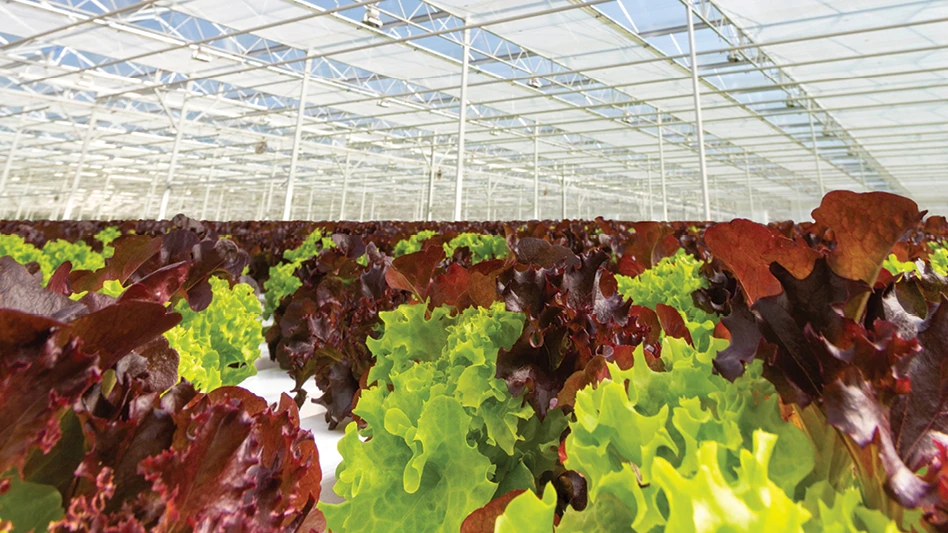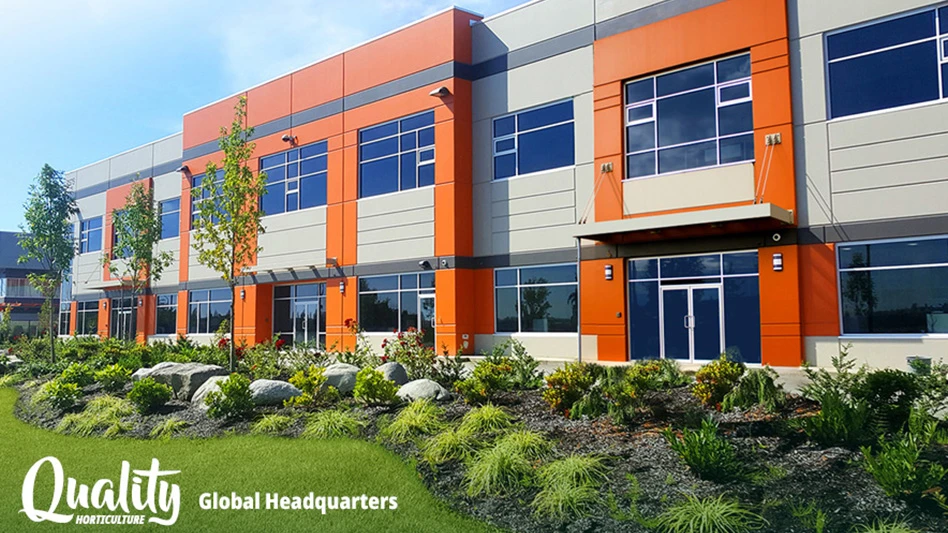
In Greenhouse Management’s October State of the Industry issue, AmericanHort senior vice president Craig Regelbrugge discussed the current state of labor and how it relates to the green industry. You can read that story here.
Below is the rest of the interview with Regelbrugge, where he discusses the ICE raid at Corso’s, what growers are asking of AmericanHort regarding labor and what the upcoming elections might mean for the industry’s desire for labor reform.
Greenhouse Management: You met with the Corso family [owners of Corso’s Perennials, who were raided by ICE over the summer] at Cultivate’18. What was that meeting like and how are they doing?
Craig Regelbrugge: I would tell you that the tone was a very somber one. It reminds me of back in the mid-‘90s when we had a spate of enforcement actions underway at the time that included raids of a giant in the industry. It was up at a [nursery in Northern California], which has since become their family farms. They were hit with one of these raids. And as he watched workers hauled away in handcuffs and [their] lives destroyed - these workers were like family to him and his family - I think just the human and emotional toll that I saw back then plays out in virtually every one of these situations. This was just emotionally a really, really difficult thing for them to go through. But you know, I sensed that they are very resilient people. They'll grit their teeth and put one foot in front of the other., They'll work through the aftermath and work through what they need to do to rebuild the business.
They were, I think, very appreciative of the resources that we helped line up for them and the guidance that we help to provide. But obviously this is just a hugely daunting thing, and nobody would wish it on their enemy, frankly.
GM: Do you find that AmericanHort is getting more requests now for advice on labor, and how to insulate the business from potential labor-related legal issues?
CR: I think so. I mean the labor issue, just as we're traveling around to industry meetings and doing a lot of presenting, labor is top on everybody's list of concerns. There is a sense of concern which is verging on desperation about the direction of the labor situation. We've really stepped up from a programming standpoint. We recently partnered with the Western Nursery and Landscape Association to do an I-9 compliance webinar and we've made that available to our members and through our state partners. So, there’s good interest and good energy on that. Similarly, back in June, we had done a focus group aimed toward our premium members. We had done a sort of ”know before you go into it” walkthrough of how the [I-9] program functions and what people need to be paying attention to and what I’ve been concerned about. That had a ton of interest not just because it's a great program but because it's the only safety net that we've got. We're doing what we can to help businesses network and share ideas and solutions.
GM: How do you see the midterm election results affecting the current legislative situation? Comprehensive FiveThiryEight polling currently shows that it’s likely that Democrats will take back the house, but that Republicans will hold onto the Senate. How might any shift in power change how you work with Washington to try make sure the industry is getting its voice heard?
CR: I think, first of all, I'm at low levels of optimism that there is a viable path for significant relief through legislation. And I say that because things are so polarized. We’d like to basically reform H-2A and create a new decent ag program. The visa program reforms are a mixed bag. Some of them are quite attractive, others of them would be likely to severely destabilize the current workforce. Our basic point on the legislation that's pending is we need more labor and we need access to more labor. And even if a quote-un-quote solution resulted in the loss of even 10 or 20 or 25 percent of the current workforce that is unauthorized, it's going to be a hellish transition because we won't end up with more labor. We will end up with hundreds of thousands of workers fewer than we have right now that are going to have to be replaced on an emergency basis. And if you're paying attention to the capacity of visa programs and demographic shifts in Mexico and all these other things, you know there aren't hundreds of thousands of workers just waiting.
As a general matter, historically, Republicans have been more favorably inclined toward visa program opportunities. That's not absolutely true [now]. I mean, we have a lot of pushback these days coming from both the far right and the far left against foreign worker visas. But as a general matter, we've had broader Republican support for improving the visa program and we've had broader support among Democrats for a realistic solution, for permanent workers. I think if we see further polarization -- if we see fewer people in the middle after this election and more people elected that are one extreme or the other more progressive or more conservative -- it's going to be even harder because we know we're not going to have what we need. We need both tools to be addressed. We need both current workforce solutions and better visa programs, and we're going to still have strong opposition to either aspect by one side or the other.
GM: What are you expecting from the upcoming midterm elections? What are your predictions for the upcoming midterm elections in terms of candidates
CR: Last I looked, and maybe you've seen more recent, the generic valid advantage was, was plus-11 for the Democrats. So, they do have that possibility, but the margins aren't going to be likely all that wide one way or the other. It's been super interesting because the Democrats are defending more than three times the seats that Republicans are defending and 10 of those seats are in states that President Trump won. So, there's been a lot of concern for Democrats in the Senate, just holding the ground they have is a steep uphill climb. That all said, recent analyses are suggesting that the Democrats in difficult races, like Joe Donnelly in Indiana and Claire McCaskill possibly in Missouri, are really holding their own. And then you've got Ted Cruz running a little bit scared in Texas, which nobody was really expecting to be the case. You've got a potentially close race in Texas [between Cruz, a Republican, and a Beto O’Rourke, a Democrat] and a potentially close race with Martha McSally [a Republican] and Kyrsten Sinema [a Democrat] in Arizona.
It is possible that both chambers slip. We'll deal with whatever. I think the path forward for legislative reforms in any event is probably going to be smaller packages, smaller rifle shot fixes. I just don't think that the system has the capacity to do a big grand bargain comprehensive bill. On a positive note, we do have the Trump Administration and the multi-agency effort to make improvements to the H-2A program is taking shape behind the scenes and we’re hopeful that reforms will be in place for the 2020 growing season.
GM: Can you describe your relationship with the current administration, and the challenges the industry is facing?
CR: The answer is that it depends. We have allies in the administration, people that understand this issue through and through. They understand [the labor issue] for agriculture, particularly how important it is to solve it wisely. The nucleus of that kind of support is not surprisingly at the USDA with Secretary [Sonny] Perdue and some of his senior advisors are very, very well versed in the labor issue and, and are working very, very diligently to help bring support and get us to a better place. We still have significant challenges and many of those significant challenges are in the White House policy apparatus itself, as well as in the Department of Homeland Security and Department of Justice. And we're seeing a whole lot more scrutiny being brought on the existing legal visa programs.
While some of that might be compliance assistance, it maybe means stepped-up enforcement. I just think it's worth everybody remembering that there are people inside this administration who are on a quest not only to end illegal immigration, but to substantially limit legal immigration. And how anybody thinks that we are going to sustain economic growth while constraining the labor force - these things work at cross purpose. And if you look at our demographic realities, the aging baby boomer population, if you look at the realities that we have… The Labor Department itself for the first time in history this summer said we have more job openings than we have people seeking jobs. So how anybody believes that limiting legal immigration and, for that matter, [limiting] temporary visa program opportunities is part of the answer, I don't even know. It's outlandish.
Latest from Greenhouse Management
- North Carolina Nursery & Landscape Association announces new executive vice president
- Plant Development Services, Inc. unveils plant varieties debuting in 2025
- Promo kit available to celebrate first National Wave Day on May 3
- Applications now open for American Floral Endowment graduate scholarships
- Endless Summer Hydrangeas celebrates 20 years with community plantings
- Invest in silver
- Garden Center magazine announces dates for 2025 Garden Center Conference & Expo
- USDA launches $2 billion in aid for floriculture growers





